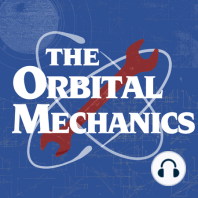36 min listen

Episode 194: DATA RELAY--Exotic Propulsion Methods
Episode 194: DATA RELAY--Exotic Propulsion Methods
ratings:
Length:
82 minutes
Released:
Jan 23, 2019
Format:
Podcast episode
Description
This week in SF history— 24 January, 1978. Kosmos 954 decayed over russia. (wikipedia.org) — This was a Upravlyaemy Sputnik Aktivnyy (Управляемый Спутник Активный) “Controlled Active Satellite” (wikipedia.org) — Wikipedia has a great list of nuclear reactors in space, including their fates (wikipedia.org)Spaceflight news— Chang’e-4 enters Lunar night (spacenews.com) (cnn.com) — Scott Manley made a landing footage analysis video (youtube.com)Short & Sweet— Relativity Space gets a launch pad. (spaceflightnow.com)— Stratolaunch scraps its launch vehicle program. (spacenews.com)— ISRO aims to test reusable rocket technology this summer. (indiatimes.com)Data Relay: Exotic Propulsion— Thanks to Ben McPheron for researching and presenting this topic. — twitter.com/bdmcpheron — benjaminmcpheron.com — youtube.com/DMExplains— Ion drives (wikipedia.org) — Electrostatic (theorbitalmechanics.com) — Electrothermal (PDF: nap.edu) — Electromagnetic (wikipedia.org)— Photonic sails — Proposed mission to use Sol as a gravitational lens (PDF via archive.org: spaceroutes.com) — Related: Magnetic sail (onlinelibrary.wiley.com) (PDF: usra.edu) — IKAROS (esa.int)— Nuclear thermal engines — Open Cycle (projectrho.com) — Pulsed NTR (aiaa.org)— Nuclear fusion (space.com) — PuFF (Pulsed Fission-Fusion) (nasa.gov)— Laser powered Ion Drive (nasa.gov)— Mach Effect drive (nasa.gov)
Released:
Jan 23, 2019
Format:
Podcast episode
Titles in the series (100)
Episode 158: Version F: SpaceX flew their first Falcon 9 v6! Or, no, wait, Falcon 9 Block VI. No, wait, Falcon 9 Block 5. by The Orbital Mechanics Podcast